How long should I burn a candle? Pros reveal the easy formula for this candle safety tip
Home-scenting success and safety are the perfect combination

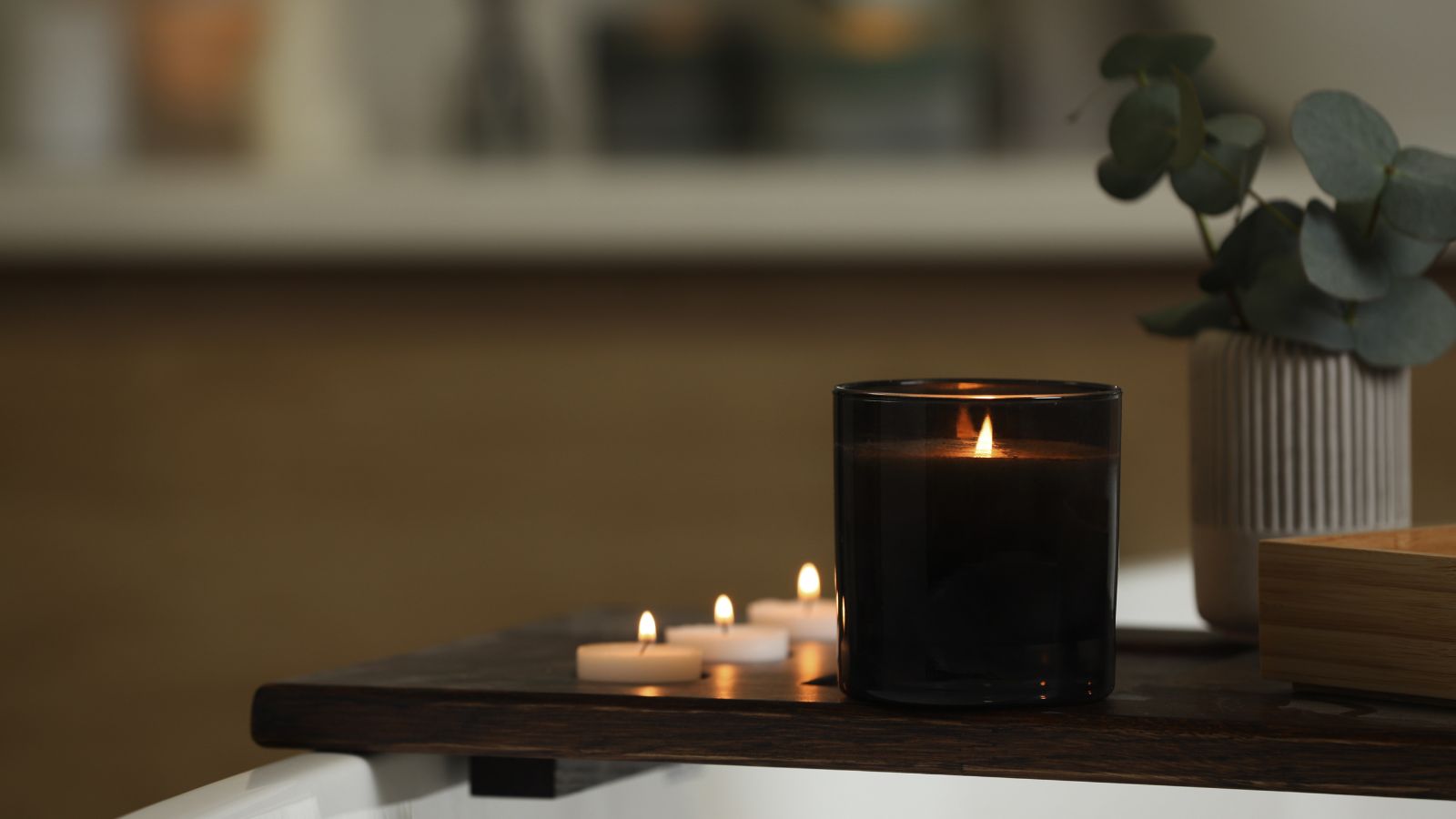
I absolutely love burning candles at home, but one thing I am always acutely aware of is the danger that comes with having an open flame on the go.
I've spoken to home fragrance pros who stress the importance of working sensibly with open flames, which includes avoiding burning candles for too long as candles and their containers can overheat.
Avoid this dangerous candle burning mistake, and use the easy formula of diameter vs time to learn how long to burn any candle in your home for.
How long to burn candles for
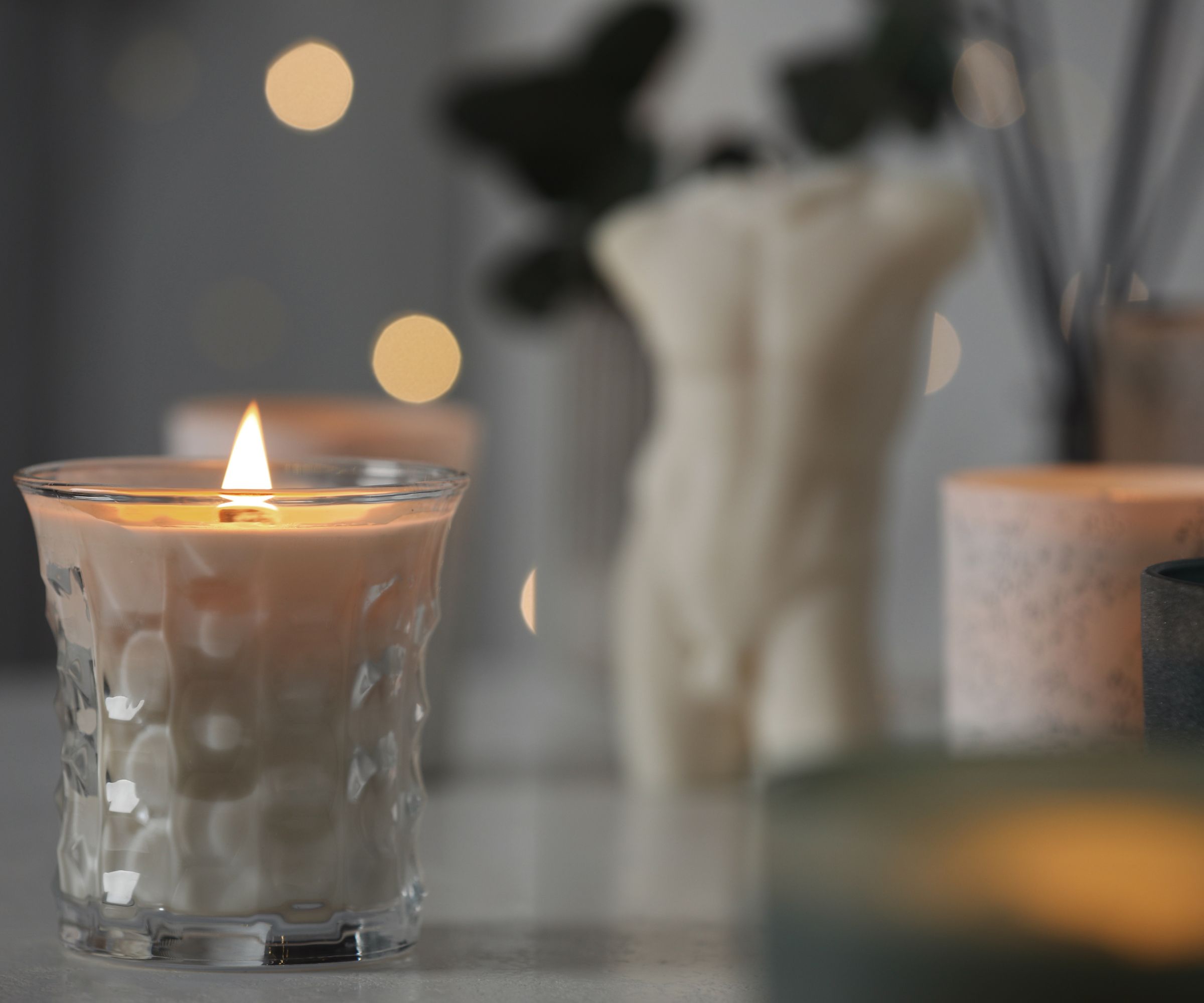
How long you should burn a candle to make your home smell nice will depend on its size. According to the National Candle Association, a candle should burn one hour for every inch in diameter of the candle size, so if a candle is two inches, it can burn safely for two hours.
No matter the size, however, you should not burn a candle for longer than four hours at a time.
Sahina Ibrahim, founder of Nuhr, a home fragrance brand inspired by beautiful scents from the East, explains, 'Think of it as a candle power nap: two to four hours is the sweet spot. This gives the wax time to melt evenly across the top, preventing that annoying tunnel effect, because no one wants a candle that only burns down the middle!
'Plus, giving it a break after four hours keeps the container from overheating. So, set a timer and let the candle work its magic – then let it rest!'
Design expertise in your inbox – from inspiring decorating ideas and beautiful celebrity homes to practical gardening advice and shopping round-ups.
It's also important to never leave a candle unattended, and to give it plenty of space, away from drafty areas. You should also always trim the wick before use, and details of how to do so are shared in our expert-led candle care guide.
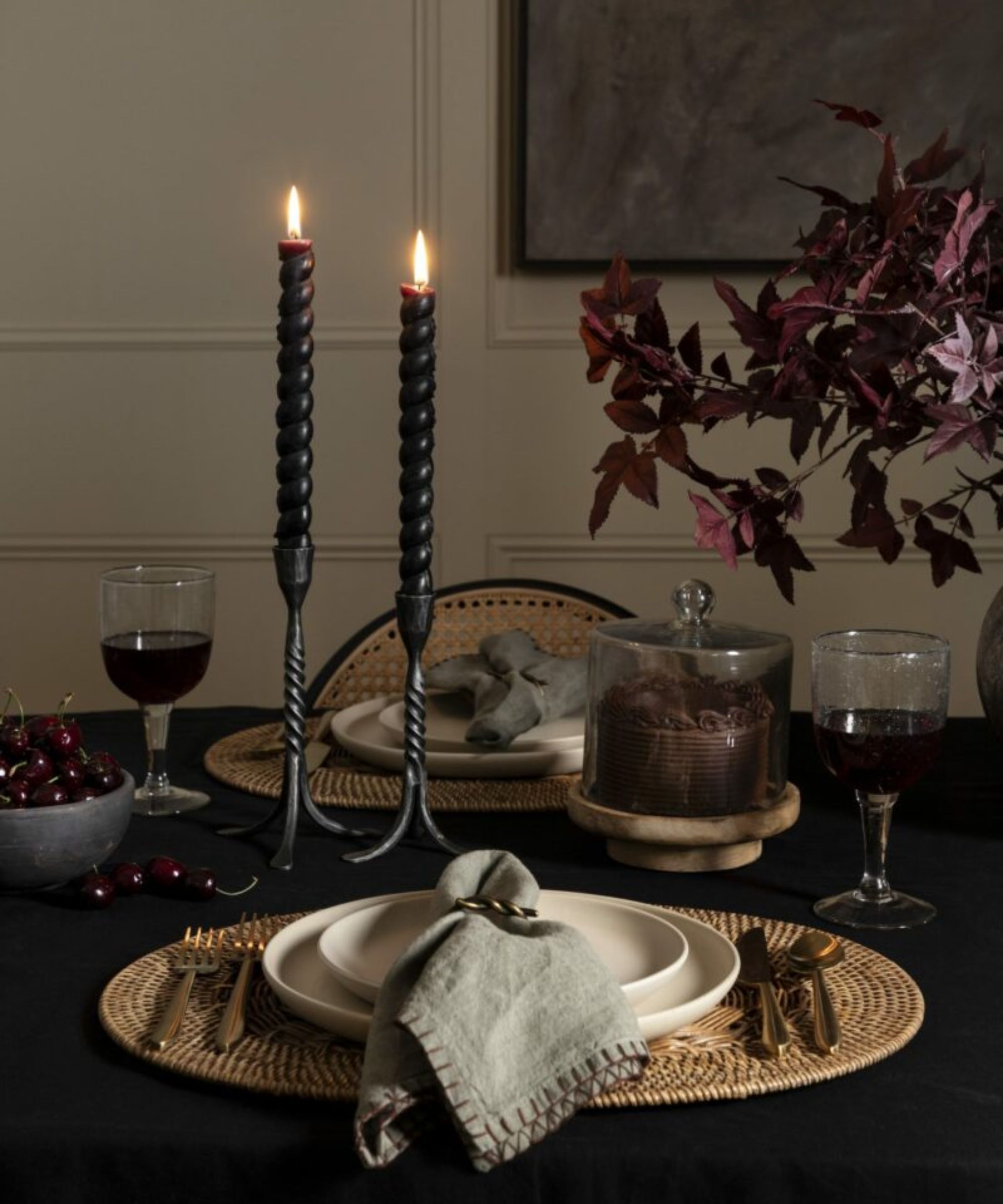
A beautiful tablescape from Studio McGee featuring their Rosario Taper Holder
Robin Wilson, co-founder and CEO of Arctic Wicks, adds, 'To explain how candle wick length effects candle performance, think of the wick as an engine: the bigger the engine, the more fuel it consumes. If a wick is too long, it draws up too much fuel (wax and fragrance) too quickly, causing the candle to burn hotter and faster.'
Therefore, trim your wick before every use, to about 1/4 of an inch each time, to ensure a steady burn and optimize both the safety and longevity of the candle.
Wilson continues, 'Proper wick maintenance not only preserves the candle's appearance and scent quality but also contributes to a cleaner, more enjoyable burning experience.'
Using a snuffer to put out your candles after burning is also safer than blowing them out, protecting both the wax and the wick, and is recommended by S.E. Carter, a candle maker and founder of Chaos Candle Company, a deaf-owned business based in Washington D.C.
Carter suggests using the popular pick Wojeull Stainless Steel Smokeless Candle Wick Bell Snuffer available at Walmart, and I personally love this Blomus Burnt Metal Candle Snuffer available at Anthropologie.
All prices were correct at the time of publication.

This is my favorite candle to burn at the moment, which has notes of lily of the valley, pine needles, fir cones and birch sap. It's also vegan, cruelty-free, and sustainably-farmed, with non-GMO Swedish rapeseed wax, a pure cotton wick, and an FSC-certified beechwood lid.
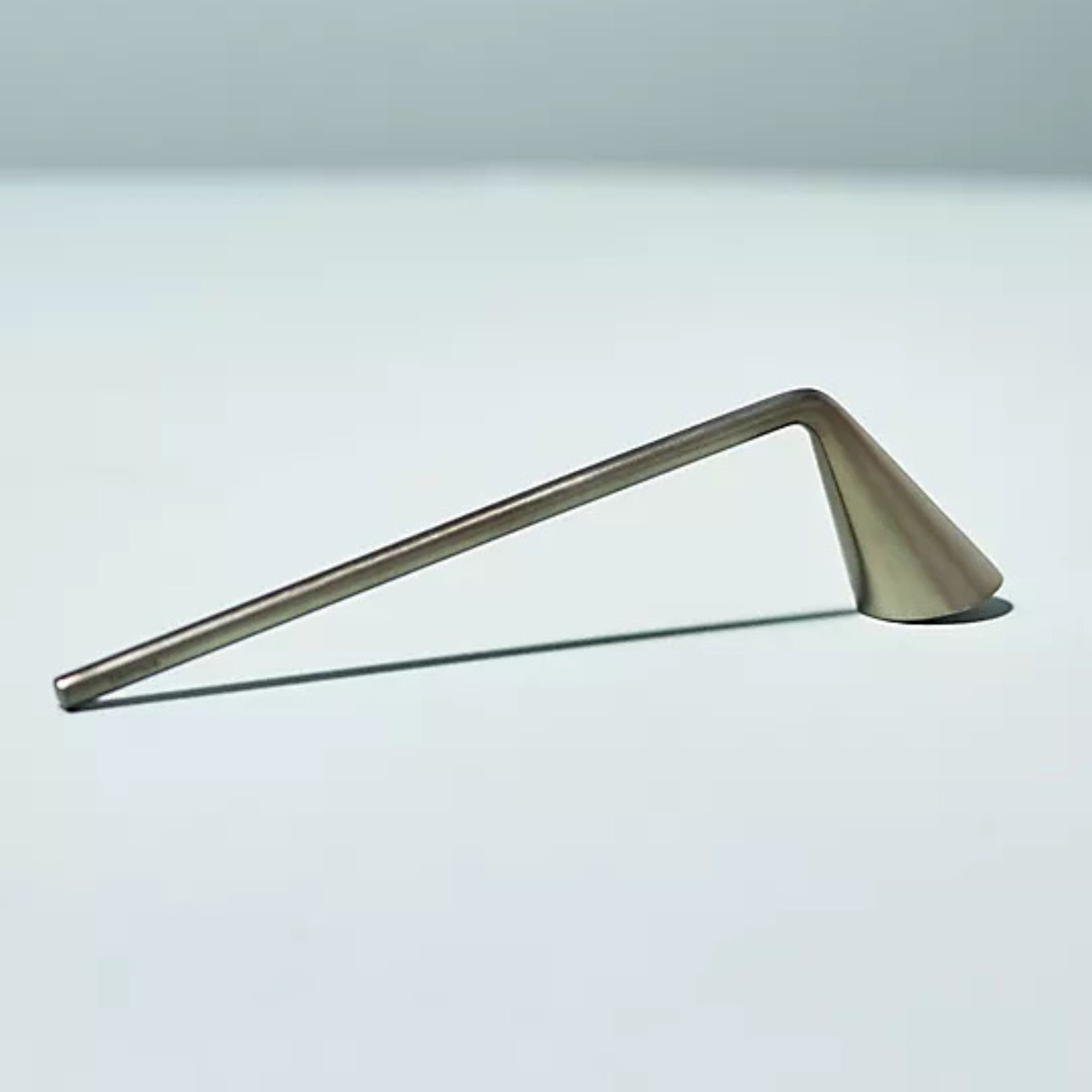
Snuff out your candle smoke in style with this slick offering from Anthropologie. The beauty of using a snuffer is it doesn't send a plume of annoying smoke into your room.
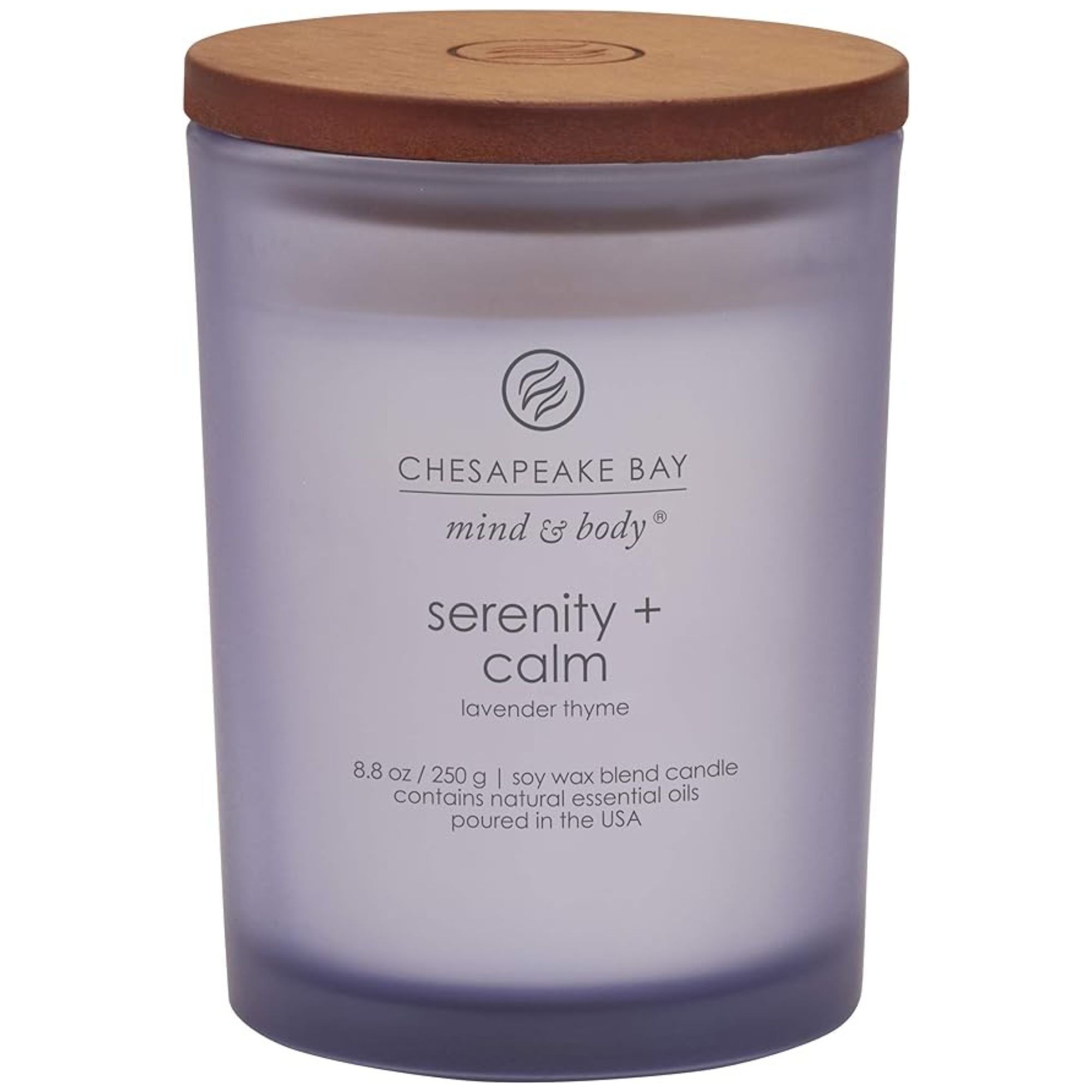
This candle is perfect for bringing a soothing aroma into your entryway or bathroom ideas. It's long-burning, providing approximately 50 hours of scent, and made with premium essential oils. It's also comprised of a natural soy wax blend, and is 100% recyclable.
The slight caveat is burning your candle for the very first time so that the wax melts fully to the edges.
Amy Keller, founder of Apidae Candles, explains, 'As a rule, you should always burn a candle until it reaches the edge. Candles have a memory and remember how far it burned the first time. If the candle is extinguished before reaching the outer perimeter, it will tunnel down.'
Therefore, this is an effective way to avoid candle tuneling, which can render your candle unusable with flooded wicks and uneven wax.
How to scent your home without candles
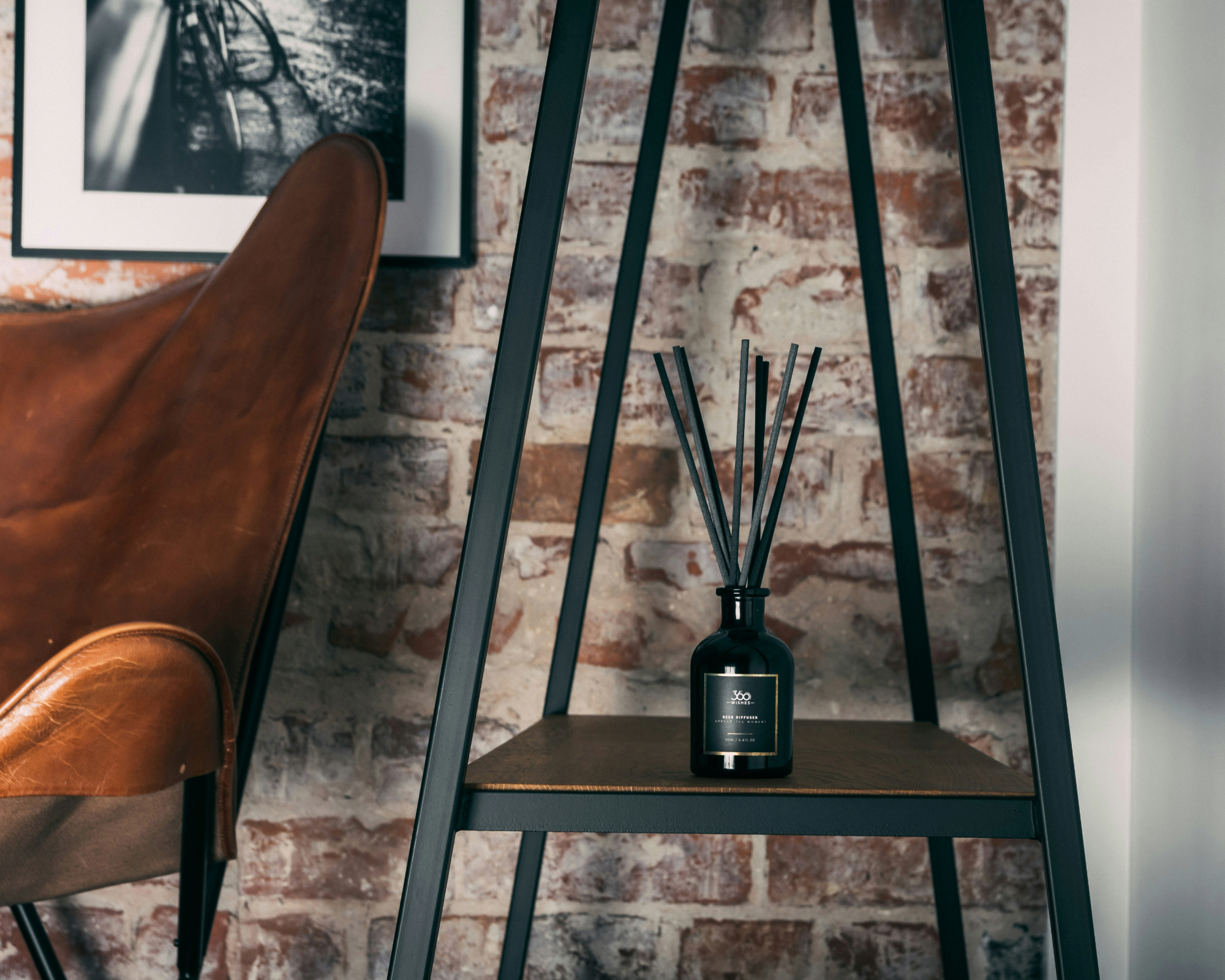
If candle safety gives you the heebie jeebies, there are other ways to make a home smell expensive, or smell nice without candles. For example, you can get all the scent of your candle without the danger of a burning flame with a candle warmer, as recommended by Yance Cheng of Hisummer.
He says, 'For safety, our Electric Adjustable Height Candle Warmer Lamp with Timer available at Amazon is a great solution, as it uses flameless electric heating to release scents without an open flame. This not only reduces fire hazards, but is pet and child-friendly. Additionally, the built-in time functions (two, four, or eight hours) allows for worry-free usage, even in bedrooms or homes with young children.'
This candle warmer also offers adjustable brightness, and height for a tailored experience, providing a strong, safe, and even fragrance release thanks to its high-powered halogen bulb.
You may also want to try one of the best essential oil diffusers, or best reed diffusers, for home-fragrance without fire.
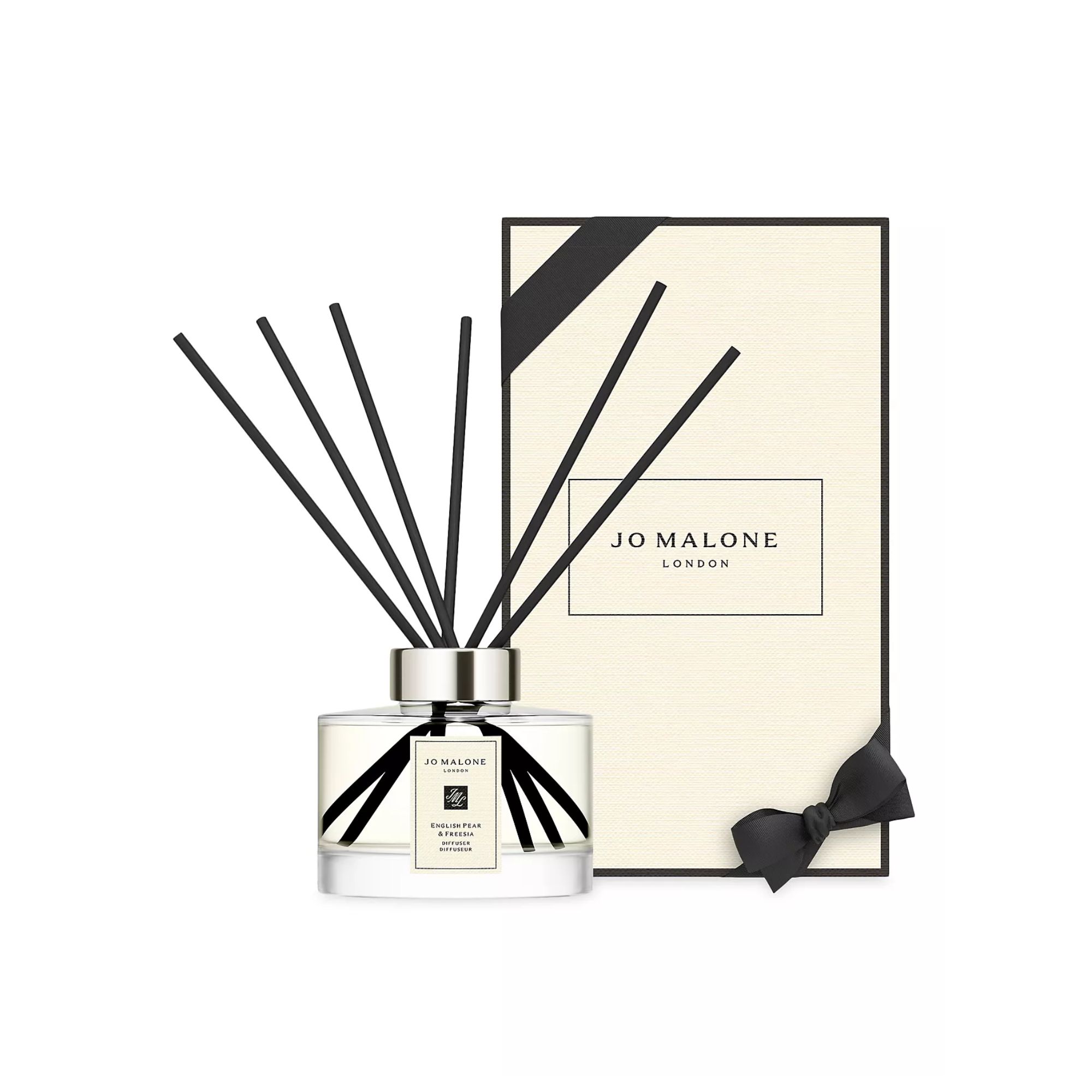
Jo Malone's diffuser was voted our top pick here at Homes & Gardens, and I personally love this specific scent for a really fresh, clean-feeling fragrance. While high-end, these diffusers last well, look elegant, and smell amazing.
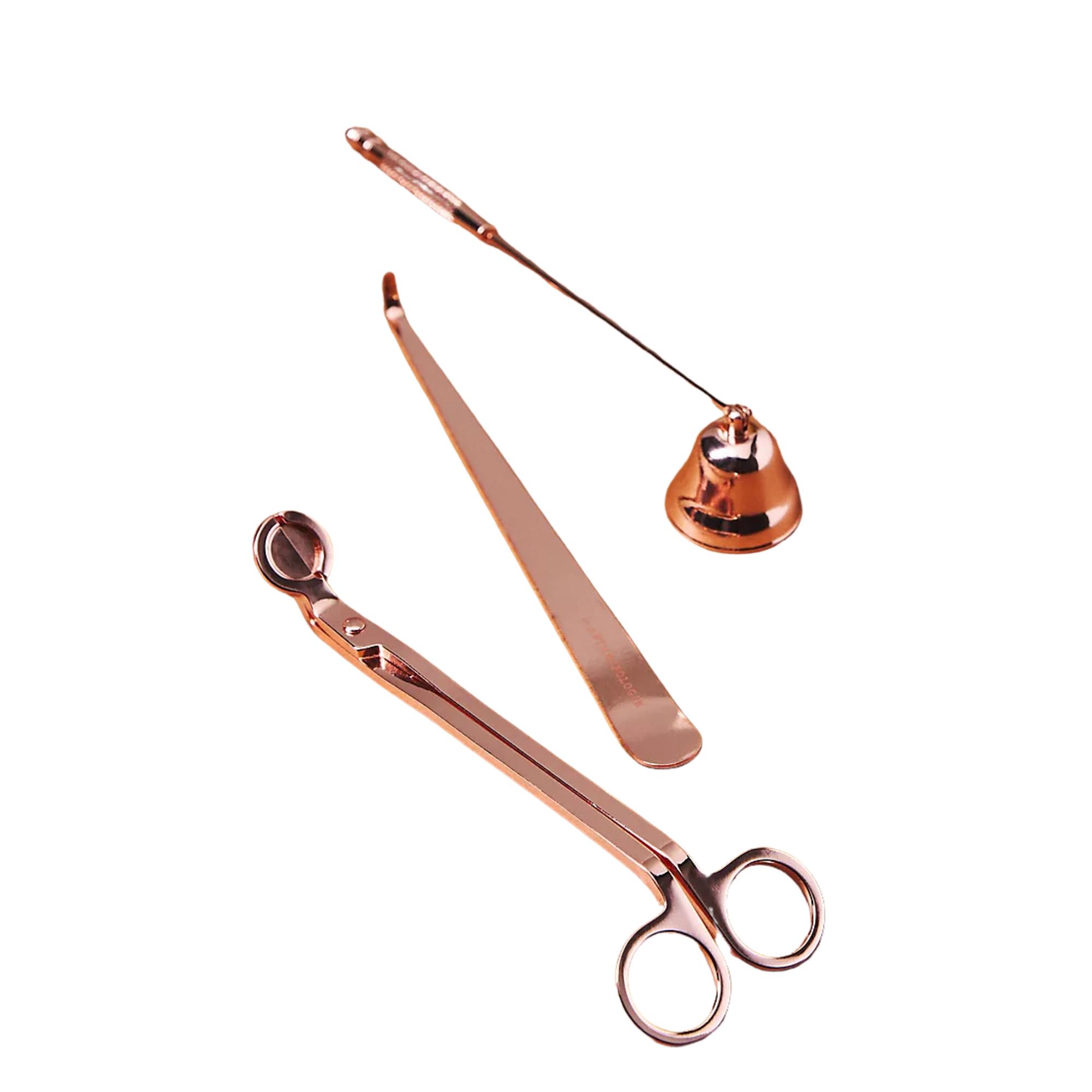
This gorgeous copper candle care kit contains a wick trimmer, candle snuffer and wick dipper, for extinguishing flames without smoke. It's made of stainless steel, so won't rust or tarnish, and makes one of the best home gifts for candle lovers.
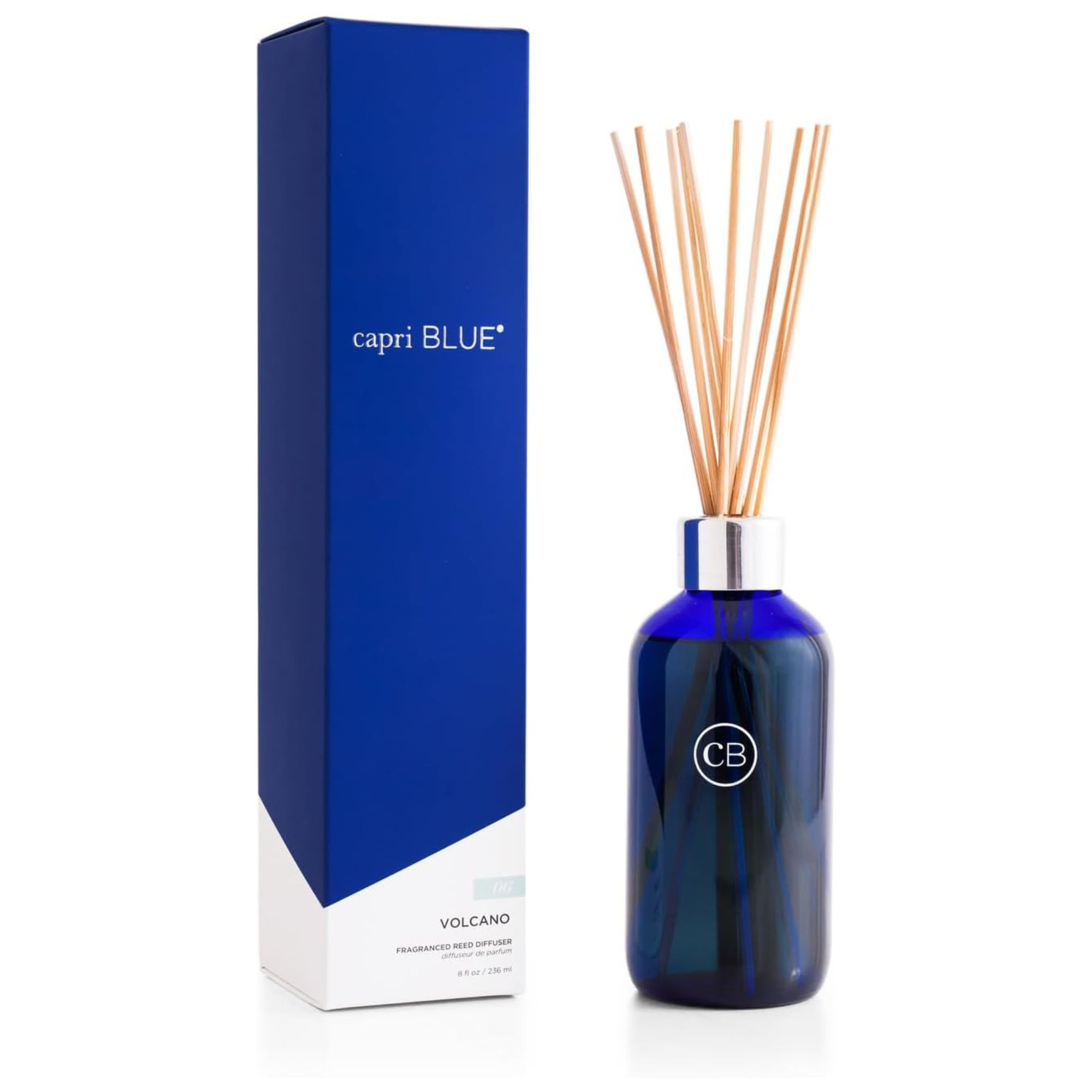
With a bright, fruity scent, this diffuser looks modern and elegant, and has a long-lasting scent with really packs a punch. With notes of tropical fruit and sugared citrus, it's perfect to lift a living room, or brighten a bedroom.
FAQs
How do I know when a candle is done?
It's very important to stop burning a candle when there is 1/4 inch of wax left in the jar, as when the majority of the wax has been burned, the flame will heat the container and make the bottom of the candle hot.
To make your candles last longer, always burn your candles on an even, heat-proof surface, and allow your candle to cool completely before re-lighting.
Is it safe to let a candle burn all night?
It might seem obvious, but this one of the most common fire risks in your home.
A candle should never be left to burn all night, under any circumstances, as doing so poses an extreme fire hazard. Instead, to make your bedroom smell good for sleep, use a homemade room spray, or lavender essential oils to promote good rest and relaxation.
Not sure what to do with a candle when it's burnt out? Here at Homes & Gardens we love to reuse candle jars around the house. From storing and organizing makeup brushes to plant propagation and match storage, there are a myriad of ways to give your old candle a new lease of life.

Ottilie joined Homes & Gardens in 2024 as the News Writer on Solved, after finishing a Master's in Magazine Journalism at City, University of London. Now, as the Sleep Editor, she spends her days hunting deals and producing content on all things sleep – from mattresses and sheets to protectors and pillows, all of which she tests in her own home. She also has particular expertise in home fragrance, covering everything from candles to reed diffusers.
Previously, she has written for Livingetc and Motorsport Magazine, and also has a Master's degree in English Literature and History of Art from the University of Edinburgh, where she developed a love for inspiring interiors and architecture.